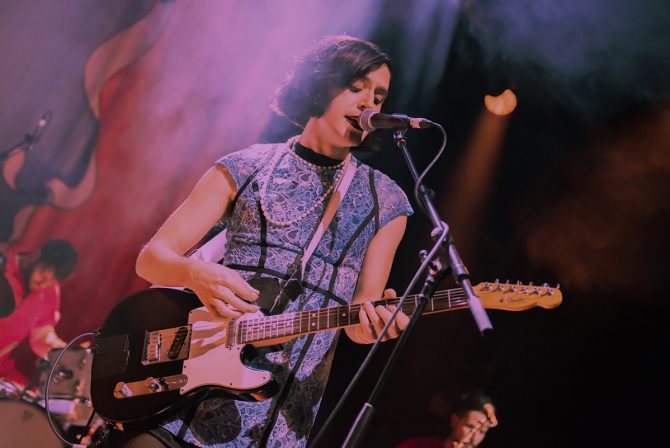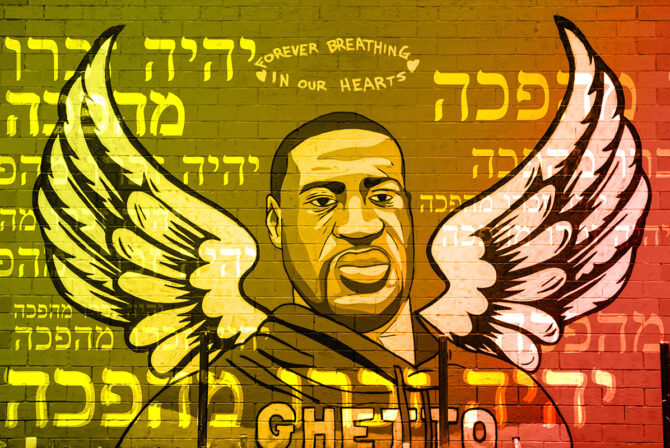当我还是个少年时,我们住在波士顿郊区。我们的neighborhood曾是affluent but my family was broke. On summer Sundays, preparing for back-to-school, we bargain-hunted.
我们访问了1960年代早期的服装工厂,仍然点缀了新英格兰磨坊城镇。工厂背部房间将开放 - 仅限周日 - 略微(或多于略微)不完美服装。便宜的。这些物品被盖章“不规则”。
I had Irregular jeans, skirts, sweaters, underwear. I joked that my last name was Irregular. But there was sorrow behind the joke. I was young and wanted to fit in with thepopular kids. I wanted to be Regular.
Of course, no one knew that my衣服weren’t perfect. Still, the Irregular tag changed me in some profound way. Ifelt不同的。或者,也许,我曾是不同的。I didn’t spend time going shopping, the way many other girls did almost every Saturday, it seemed. When I went shopping, I didn’t buy much. I couldn’t. Unlike my junior high school peers, I didn’t have free rein with a credit card. My family didn’t evenhavecredit cards. Back then, there was no Mastercard or Visa, just individual cards for each store. One for Filene’s. One for Jordan Marsh, and so on.
前几年,当我10岁时,我父亲的折扣电视和家电店业务翻转。他went bankrupt. I remember watching my mother at our round, kitchen table, cutting up all our store cards.
After that, we paid cash. Always. If we didn’t have the money, we didn’t buy the thing. End of story. And when we did need things, we bought bargains. Irregulars.
The time came that we需要a new car — ours had broken down, irreparably. My parents found a previous year’s model that was priced right.
That car, a Dodge Charger, was shiny, bright, and new. It was also purple. Talk about not fitting in with the “in” crowd! Still, it got us where we needed to go. Our clothes kept us warm. We didn’t spend money shopping for things we didn’t need. I didn’t spend时间购买我不需要的东西。
What’s more, I didn’t hang around people I didn’t enjoy.I readand I thought and I chose my friends carefully. I still do.
事实证明,不规则有益。还有。
These days, thanks to the pandemic, we’reallIrregular. We’re not seeing friends or family like we used to; we’re all reading more, thinking more, watching更多电视. Most of us are not shopping for things we don’t need. Small talk, casual grocery-store conversations about peaches, the weather, or new products are gone. For those of us who are not, in some way, essential workers,the pandemichas stolen a big piece of our humanity — our willingness to help a stranger, to smile and say hello.
Yet our humanity depends on each other. InPirkei Avot,we read, “Greet every person with a pleasant countenance,” i.e., a smile. That’s difficult, of course, when we’rewearing masks. Yet it’s important. In these Irregular times, we have to — somehow — show others that we are respectful of them and aware of their humanity as we also want them to be aware of ours. Bantu languages have a word,ubuntu, that describes this interconnectedness. Loosely translated, it means, “my humanity depends on your humanity,” or “I am who I am because of you.” We areall连接的。然而,我们处于失去这些重要联系的危险。
好消息是希望 -疫苗- 在这儿。它花了一些时间,但我们更多的人每天都接种疫苗,我们都必须接种疫苗。我的人性取决于你的人性。我们都在这汤饭。我们所有人都是人体状况的一部分。
It will be nice to smile at strangers again, or to chit chat with your neighbor when you check the mail, or to pick up an interesting vegetable in the supermarket, turn to someone nearby and say, “Beautiful, isn’t it?” It’s these little moments that we, as human beings, need. It’s when we realize that Irregular as we are, we all sparkle.
As for my family, as a result of ourback-to-schoolshopping trips, my father began buying Irregulars and other less-than-perfect items and warehousing them. One day a week — on Sundays — my father opened his warehouse to the public. Bargain hunters came from all over New England. SoonBuilding #19公司每周开了两天,然后3、then seven days. His business grew to 12 stores… and lasted almost 50 years. Quite a gem for something Irregular.
This Irregular time will yield gems, too. We’ll learn, and, someday soon, we’ll all sparkle once again.
他ader image by Ekaterina Kapranova/Getty Images








